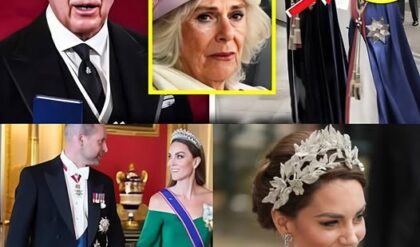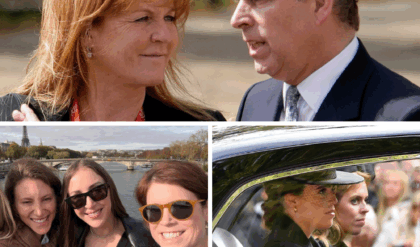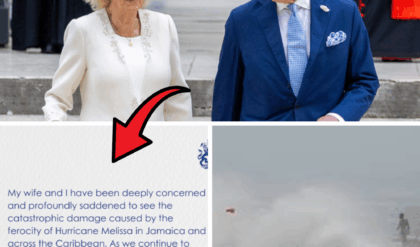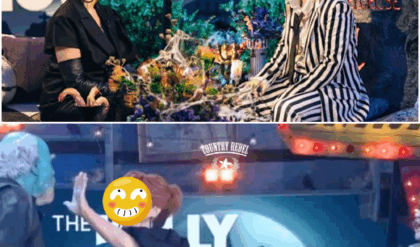In the glittering facade of Hollywood, the “girlboss” narrative—once celebrated as a feminist triumph—has begun to crumble, exposing a messy underbelly of backlash, hypocrisy, and embarrassment. As of 1:49 PM +07 on Friday, June 20, 2025, this cultural shift is epitomized by the public struggles of two high-profile figures: Rachel Zegler, the young star of Disney’s Snow White remake, and Meghan, Duchess of Sussex, whose royal exit and media ventures have stirred relentless controversy. What began as a push to empower women with unapologetic ambition has devolved into a spectacle of criticism, with these women bearing the brunt of a narrative that Hollywood itself helped create—and is now struggling to dismantle. This unraveling reveals not just the limits of the girlboss trope but also the industry’s deeper issues with authenticity, accountability, and the commodification of female success.
The Rise and Fall of the Girlboss Ideal
The girlboss phenomenon emerged in the early 2010s, championed by figures like Sophia Amoruso, whose book #Girlboss inspired a Netflix series, and amplified by Hollywood’s push for strong, independent female leads. The trope promised a world where women could shatter glass ceilings, lead with confidence, and reject traditional roles—think CEOs, warriors, and self-made moguls. Disney’s live-action remakes, including Snow White with Rachel Zegler, and Meghan’s reinvention as a lifestyle influencer post-royalty, were marketed as embodiments of this ethos. Yet, the sheen is wearing thin. What was once lauded as empowerment is increasingly seen as a performative script, leaving its poster children vulnerable to public scorn.
The shift began as audiences grew weary of the formulaic “strong female character” trope—often criticized as shallow or pandering. By 2025, with Snow White’s underwhelming $87 million global box office debut and Meghan’s Archetypes podcast facing mixed reviews, the cracks are evident. Hollywood’s obsession with crafting these narratives, only to abandon their stars when they falter, has turned the girlboss ideal into an embarrassing relic, exposing a disconnect between intent and execution.
Rachel Zegler: The Snow White Storm
Rachel Zegler, at 23, became a lightning rod for this shift with her role in Disney’s Snow White, released on March 21, 2025. Cast as the first Latina Snow White, Zegler faced immediate backlash over her ethnicity, with critics arguing it strayed from the 1937 animated classic’s “skin as white as snow” description. Her outspokenness amplified the controversy. In 2023 interviews, she dismissed the original’s love story as “outdated” and “weird,” suggesting Snow White would focus on leadership over romance. Posts on X, like her August 2024 “free Palestine” tweet and post-election Instagram rants against Trump, further fueled the fire, drawing ire from conservatives and Disney fans alike.
The film’s $270 million budget and extensive reshoots—prompted by muted test screenings—set high expectations, but its box office flop has led insiders to scapegoat Zegler. Reports suggest Disney hired a social media guru to monitor her posts, and tensions with co-star Gal Gadot, exacerbated by differing political views on the Israel-Palestine conflict, added to the narrative of discord. Zegler’s defense—“I was shocked by the amount of hate”—has won her some sympathy, but the damage is done. Her career pivot to the West End’s Evita in summer 2025 signals a retreat from Hollywood’s glare, highlighting the girlboss image’s fragility when it clashes with public expectation.
Meghan Markle: The Royal Reckoning
Meghan, Duchess of Sussex, embodies another facet of this collapsing narrative. After stepping back from royal duties in 2020, she and Prince Harry launched a media empire with Netflix deals and Spotify’s Archetypes podcast, positioning her as a feminist trailblazer challenging patriarchal institutions. Her 2021 Oprah interview, alleging racism within the royal family, and the 2022 docuseries Harry & Meghan cemented her girlboss status—unapologetic, self-made, and vocal.
Yet, the shine has faded. Archetypes ended after one season amid reports of creative differences with Spotify, and Netflix projects like Pearl face delays. Media scrutiny has intensified, with tabloids dissecting her Montecito life and mocking her “money obsession” amid Harry’s financial woes. Public perception, reflected in X posts calling her “out of touch,” contrasts with her early narrative of empowerment. The couple’s absence from the Time100 Philanthropy list, despite Kate and William’s inclusion, underscores a shift from admired to alienated.
The Backlash: A Cultural Reckoning
The backlash against Zegler and Meghan reveals a broader rejection of the girlboss trope. For Zegler, it’s rooted in her perceived arrogance—criticizing a beloved classic and wading into politics, which some see as biting the hand that feeds her. Her defenders argue the hate is misogynistic and racist, pointing to death threats against Gadot and Zegler’s own harassment, yet the narrative of a “spoiled” star persists. Media outlets like Daily Mail and Variety have amplified this, with reports of Disney insiders blaming her for Snow White’s failure, a claim Zegler’s supporters call a “hit job.”
Meghan’s fall mirrors this pattern. Her royal critique, once lauded, is now seen by some as opportunistic, with X users labeling her a “grifter” after failed ventures. The contrast with figures like Sydney Sweeney, who in 2023 questioned the girlboss philosophy’s trade-offs, highlights a cultural pivot toward valuing balance over unrelenting ambition. The Glamour article from April 2025 framing Zegler’s ordeal as misogyny-driven offers a counterpoint, but the public’s fatigue with performative feminism suggests a deeper disillusionment.
Hollywood’s Role: Creator and Destroyer
Hollywood bears responsibility for this mess. The industry marketed Zegler and Meghan as girlboss icons—Zegler as a modern Snow White, Meghan as a royal rebel—only to abandon them when the narrative faltered. Disney’s push for a “woke” Snow White, complete with CGI creatures replacing the Seven Dwarfs, and Meghan’s curated Netflix persona reflect a corporate strategy that prioritizes optics over substance. When these projects underperform, the blame shifts to the women, a pattern seen with Anne Hathaway’s past “annoying woman” label and Jennifer Lawrence’s post-Oscar dip.
This cycle exposes Hollywood’s hypocrisy. Studios profit from the girlboss image—Barbie’s 2023 success proved its marketability—yet recoil when it invites controversy. The Critic Magazine piece from August 2023 noted this lag, arguing the trope is “behind the times,” with audiences craving authenticity over corporate feminism. Zegler’s and Meghan’s struggles are less about their actions and more about an industry that builds them up to tear them down, leaving the public to pick up the pieces.
The Embarrassment Factor
The embarrassment lies in the spectacle. Zegler’s somber New York City appearance post-Snow White flop, contrasted with Meghan’s absence from recent friend gatherings, paints a picture of isolation. Hollywood’s attempt to salvage the narrative—Disney’s shelving of Tangled and Meghan’s pivot to private life—feels desperate. The Daily Mail’s coverage of Zegler’s “deflated” look and Meghan’s financial scrutiny amplify this, turning personal setbacks into public humiliation.
This embarrassment extends to the audience. X posts mocking Zegler’s “theater kid energy” and Meghan’s “royal flop” reveal a public tiring of the girlboss hype. The Mamamia article from August 2023 dubbed it “annoying woman syndrome,” a label that sticks as both women face cancellation for being “too earnest.” The industry’s failure to adapt—clinging to a fading trend—makes the collapse all the more cringe-worthy.
A Turning Point or a Cautionary Tale?
This unraveling could signal a turning point. The Vanity Fair piece from March 2025 suggests Zegler’s Snow White experience might make her an icon, not a scapegoat, if she leverages her resilience. Meghan’s silence might reflect a strategic retreat, potentially rebuilding her brand authentically. Yet, it’s also a cautionary tale—Hollywood’s girlboss obsession, built on shallow empowerment, risks alienating talent and audiences alike.
The cultural shift favors balance, as seen with Margot Robbie praising her “responsibility as a wife” or Tulisa Contostavlos’s no-sex-before-monogamy stance. Early feminists like Susan B. Anthony sought workplace flexibility, not the abandonment of family, a nuance lost in today’s narrative. Zegler and Meghan’s struggles may push Hollywood to rethink its approach, prioritizing depth over dogma.
Why This Matters
The fall of Hollywood’s girlboss obsession, embodied by Zegler and Meghan, matters because it reflects a broader societal reckoning. It challenges the industry to move beyond performative feminism, addressing real issues like pay equity and representation without tokenism. For Zegler, it’s a test of survival; for Meghan, a reevaluation of purpose. The embarrassment isn’t just theirs—it’s Hollywood’s, for crafting a myth it can’t sustain.
This story, unfolding in 2025, captures a moment of transition. As the girlboss era fades, the world watches to see if a new, more authentic narrative can rise from the ashes, or if the industry will double down, prolonging the cringe.
Final Thoughts
Hollywood’s girlboss obsession is crumbling, and the embarrassment is palpable, with Rachel Zegler and Meghan bearing the weight of its collapse. From Snow White’s box office woes to Meghan’s media missteps, the narrative’s fall exposes an industry out of touch with its audience. As of June 20, 2025, this saga serves as a stark reminder of the perils of shallow empowerment, leaving Zegler, Meghan, and Hollywood at a crossroads—where the next step could redefine success or deepen the disgrace.





